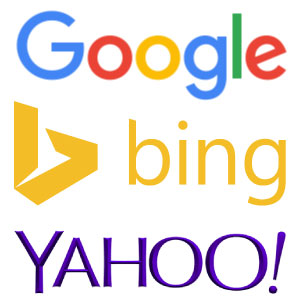
So many times people have written about the “death” of SEO. However, while SEO has changed over the years, it is still alive and thriving. In fact, more and more people are looking to get their website optimized to stretch limited ad budgets further. Let’s review how SEO has changed over the years.
Back in 1998 when I first started my business, SEO was the wild west of the Internet. So many people were getting scammed by tactics that didn’t actually produce results. In those days, however, it was pretty easy to manipulate your search result rankings. Most rankings were based on page content. Websites with a certain keyword phrase used more frequently would appear above sites who used those same phrases less frequently. Simple, right?
Over time the search engines, especially Google, realized that the inquiry results weren’t always accurate. Not producing accurate search results would be the death of a search engine: does anyone remember altavista, lycos, ask jeeves, or looksmart? There may be other reasons why these search engines fell out of favor, but if they had been producing accurate results, I’m sure they would still be thriving today.
As the search engines started to create more complex algorithms, they also began putting in place a ranking system that did not favor what is known as “black hat” tactics. Black hat tactics back in the day were keyword stuffing, invisible text, link farms, and pretty much anything a digital marketer could create to get more exposure for a website. The more the marketers learned about what the search engines needed to rank their website, the more outrageous they became in creating content to meet that goal. Note, that the goal of a good ranking is not the ideal goal of a website if the ranking is not inline with the site offering. More traffic does not necessarily equate to more sales.
As marketers were feverishly working to create ways to get better website rankings, another phenomena was taking place. Paid placement started with a small search engine named go.com. They offered text ads positioned by the price an advertiser was willing to pay for specific keyword phrases. We know this business model as Pay Per Click today. Overture bought go.com and then Yahoo bought Overture because everyone wanted to use this new advertising model. Eventually Google jumped on the bandwagon as well.
Advertisers, however, while anxious to “buy” their way to the top of search results, still felt cheated that they were unable to get there organically. Most worked their website for both Paid Placement and Organic placement to get the most out of their budget. SEO, however, had become more and more difficult with all the restrictions search engines, particularly Google, had placed on optimization. (During this time Google was growing rapidly and became the premier go-to search engine, so what they wanted mattered a lot.)
Fast forward to 2020 and both Google and Microsoft are developing A.I. for search. Artificial Intelligence can be a total game changer. Unlike the problems of searching just for words or phrases, A.I. has the ability to put those words into context. Someone looking for “pumps”, for example, will see either women’s shoes, gas pumps, water pumps or whatever pump they meant based on the idea that the A.I. can follow their stream of searches. In other words, A.I. knows you. They know if you are often searching for engineered parts vs. clothing. Now, they may not make selections 100% accurate 100% of the time. But it sure comes a lot closer than it has in the past.
In some ways, this makes Optimizing a website easier. No longer will you have to painstakingly explain to the search engine what type of pump is being offered. The overall context of your website and pages will give A.I. the information it needs to produce your website for relevant searchers.
The key to good SEO today is in a well written website. It should contain proper grammar, well formed sentences, relevant information, and be informational or entertaining (or both, if possible). You want your website to “go viral” within the community that you are addressing – keep that in mind when creating content.
Today, more than ever, you should be critiquing your website to ensure that it is offering what your audience wants or needs and not just what you want to sell. Careful thought and planning will give you amazing results and a healthy return on your investment. A.I. is here to stay and is going to get better and better over time.
